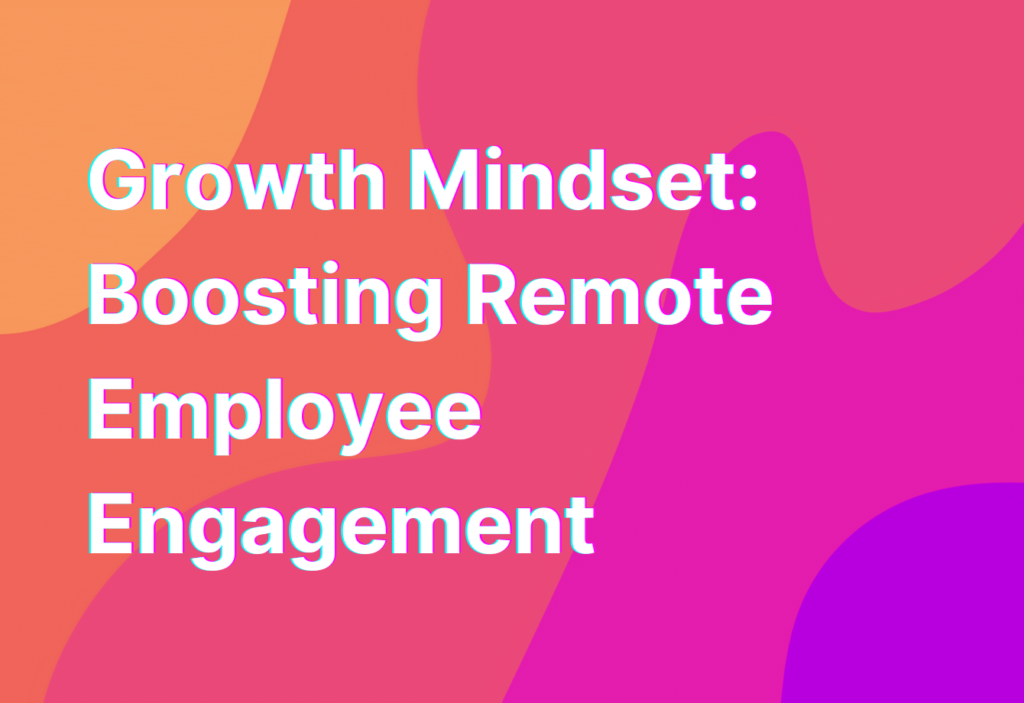Growth Mindset: Boosting Remote Employee Engagement
As remote work continues to gain popularity, it’s important for companies to find ways to keep their remote employees engaged and motivated. One effective strategy is to foster a growth mindset among remote team members. In this article, we’ll explore what a growth mindset is and how it can help boost remote employee engagement.
What is a Growth Mindset?
A growth mindset is the belief that abilities and intelligence can be developed through dedication and hard work. It’s the opposite of a fixed mindset, which assumes that abilities are innate and cannot be changed. When employees have a growth mindset, they are more likely to embrace challenges, persist in the face of setbacks, and see effort as a path to mastery.
Having a growth mindset is especially important for remote employees, who often face unique challenges such as isolation and lack of face-to-face interaction. By cultivating a growth mindset, remote workers can overcome these challenges and thrive in their roles.
How to Foster a Growth Mindset in Remote Employees
Now that we understand the importance of a growth mindset, let’s explore some strategies for fostering it in remote employees:
- Provide regular feedback: Feedback is essential for growth. Remote managers should provide regular feedback to their team members, highlighting their strengths and areas for improvement. This helps remote employees see feedback as an opportunity for growth rather than criticism.
- Encourage continuous learning: Remote employees should be encouraged to pursue professional development opportunities and acquire new skills. This can be done through online courses, webinars, or conferences. By investing in their own growth, remote workers will feel more engaged and motivated.
- Promote collaboration: Collaboration is key to fostering a growth mindset. Remote teams should be encouraged to work together, share ideas, and learn from one another. Tools like Trello and Slack can facilitate collaboration and create a sense of community among remote employees.
- Set challenging goals: Remote employees should be given challenging goals that push them out of their comfort zones. This helps them develop new skills and grow professionally. Managers should provide support and resources to help remote employees achieve these goals.
- Recognize and celebrate achievements: Remote employees should be recognized and celebrated for their achievements. This can be done through virtual team meetings, shout-outs in team chat channels, or even small rewards. Recognizing and celebrating achievements reinforces the idea that effort leads to success.
Wrapping Up
A growth mindset is a powerful tool for boosting remote employee engagement. By fostering a belief in the potential for growth and development, companies can empower their remote workers to overcome challenges and achieve their full potential. Remember, remote work doesn’t have to be isolating or demotivating. With a growth mindset, remote employees can thrive and contribute to the success of their teams and organizations.
If you’re interested in learning more about boosting employee engagement in remote work, check out our article on In-person retreats: Boosting Employee Engagement in Remote Work. It provides valuable insights and strategies for creating a strong remote team culture.


